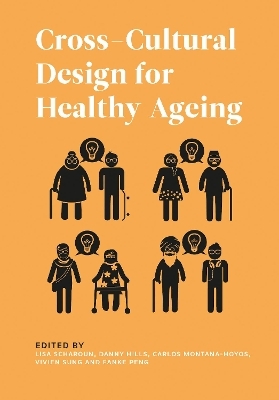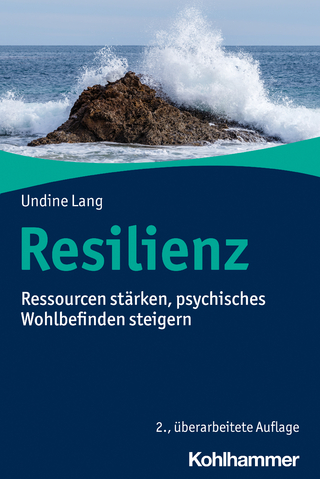
Cross-Cultural Design for Healthy Ageing
Intellect Books (Verlag)
978-1-78938-308-9 (ISBN)
This book is based on many years of research and practical pedagogical experiences around cross-cultural and multidisciplinary design for healthy ageing. It provides important insight into origins, design, implementation, and impact of cross-cultural design student study tours, and takes an original approach by foregrounding pedagogical practice for exploring healthy ageing solutions.
The populations of Australia and many other countries in the Asia Pacific region are ageing. The next few decade will see up to half of the population in many countries represented by the over 65s. The impact of this change in population balance will be profound and it represents a potential global shift in design for society. This will challenge designers, planners and health care professionals to develop solutions to better meet the needs and harness the capacity of our growing and diversifying populations of older citizens, in relation to housing, community interaction and co-operation, health and well-being, and the integration new technologies. Different disciplinary and cultural perspectives can be a means to create new ideas and approaches that provide a deeper understanding of the needs of the global ageing population.
This book examines some of the challenges associated with ageing in multi-cultural societies. We explore some of the major issues facing society in the area of ‘healthy ageing’ and propose a method of working with cross-disciplinary groups of health practitioners, designers, architects and cultural practitioners. Through case-studies of a series of workshops run in China and Singapore with Australian, Chinese and Singaporean students, we review the benefits of this approach and provide a framework for engaging designers, planners and health professionals in the process of creating new design solutions for the growing global ageing population.
This book is especially useful for academics and educators in the design and health areas. Design professionals in urban, architectural, interior, industrial, graphic, multimedia, fashion, interaction, service and user-experience design will find many useful ideas. Health professionals across the range of disciplines, including medical practitioners, nurses, physiotherapists, other allied health professionals and carers practising in different settings such as aged-care facilities, government offices and others will also find it useful.
It also provides insights and ideas for innovators, businesses and everybody interested in exploring design and innovation for an ageing population, which has been identified as a growing market. It may also be useful to anyone who wants to understand how to provide care for ageing members of the family and friends, or for anyone who wants to better understand issues around their own ageing.
Although there are many articles and books on social design, there has been very little work on the methods to combine the discipline areas of Health and Design in the creation of concepts and artefacts around design for healthy ageing. There is also very little on the understanding of ‘Cross-cultural Empathy’ in design. This book takes an original approach to ‘Design for Healthy Ageing’ by combining not only a varied discipline group of practitioners from design and health but also presenting cross-cultural methods to deal with issues associated with the social cause.
The primary readership will include professionals and academics in the areas of cross-cultural design, health, ageing and related policies, government institutions and gerontologists. It will also be of interest to tutors and lecturers across design practice internationally, and the case studies are useful for those with a specific geographical interest (Australia, Singapore, China), including clinicians, carers and other health professionals in those areas.
Lisa Scharoun is professor and head of the School of Design at Queensland University of Technology in Brisbane, Australia. She is a teacher, researcher, and designer with expertise in visual communications and cross-cultural design. Danny Hills is a registered nurse and associate professor at Federation University Australia. Carlos Montana-Hoyos is founding associate professor at the Dubai Institute of Design and Innovation. Vivien Sung is a design strategist, academic, and researcher facilitating change in the areas of health, inclusion, and ecological sustainment. Fanke Peng is an assistant professor of Visual Communications at the University of Canberra in Australia.
List of figures
List of tables
Foreword
Tamsin Greulich-Smith
Acknowledgements
List of abbreviations
1. Overview
Carlos Montana- Hoyos
2. Approaching Social Design Challenges through Multidisciplinary
Collaboration
Lisa Scharoun, Carlos Montana- Hoyos, and Fanke Peng
3. Cross-Cultural Empathy in Design for Health
Vivien Sung
4. Clinician Perspectives on Preregistration Nursing Student
Participation in Interdisciplinary, Cross-Cultural Study Tours
and Design Workshops
Danny Hills, Khoon Kiat Tan, and Doreen Heng
5. Case Study: Cross-Cultural Design Workshops for Healthy
Ageing in China
Fanke Peng, Li Hao, and Katrina Recoche
6. Design for Healthy Ageing in Multicultural Societies:
Approaching Issues Associated with Ageing in Singapore
and Australia through Cross- Cultural and Multidisciplinary
Workshops
Lisa Scharoun and Jie Hong Liu
7. Student Perspectives on Participation in Multidisciplinary,
Cross-Cultural Study Tours and Design Workshops
Danny Hills, with contributions
8. Conclusions, Overview, and Recommendations
Lisa Scharoun, Fanke Peng, Danny Hills, Jie Hong Liu,
Carlos Montana- Hoyos, and Vivien Sung
Afterword
Marina Dzhashi
Bibliography
Notes on editors
Notes on contributors
Index
| Erscheinungsdatum | 10.05.2021 |
|---|---|
| Zusatzinfo | Plates, color; 3 Tables, black and white; 44 Halftones, black and white |
| Sprache | englisch |
| Maße | 170 x 244 mm |
| Gewicht | 395 g |
| Themenwelt | Kunst / Musik / Theater ► Design / Innenarchitektur / Mode |
| Sachbuch/Ratgeber ► Gesundheit / Leben / Psychologie ► Lebenshilfe / Lebensführung | |
| Medizin / Pharmazie ► Gesundheitswesen | |
| ISBN-10 | 1-78938-308-0 / 1789383080 |
| ISBN-13 | 978-1-78938-308-9 / 9781789383089 |
| Zustand | Neuware |
| Haben Sie eine Frage zum Produkt? |
aus dem Bereich


